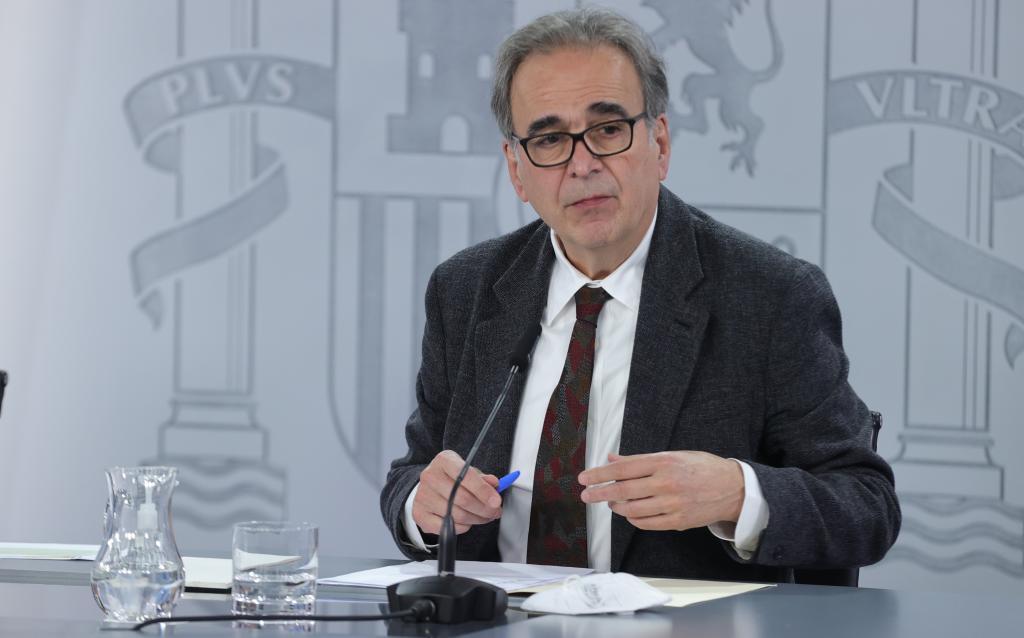The Minister of Universities, Joan Subirats, has once again changed the draft of his Organic Law of the University System (Losu) to reduce the maximum number of temporary contracts in public universities and improve the conditions of associate professors. The new wording, which is expected to take the Council of Ministers next week, responds to demands that the unions have been asking for since Manuel Castells was minister without the slightest attention being paid to them until now.
Surprisingly, and without any negotiation, Subirats has amended himself and has corrected not only the text left by Castells, but also the version that he himself presented exactly a month ago. In it, job improvements for teaching and research staff were hardly proposed, but now he has reformulated the text from top to bottom.
The main change is in article 64, which establishes that teachers with a temporary employment contract may not exceed 8% of the teaching and research staff. In the previous draft, this percentage was set at 20%. In the current law it is 40%, although in real life there are campuses -in Catalonia, Madrid or Murcia- that exceed this proportion.
“They have finally agreed to change what we have been asking for for a long time, since it is an objective that has been set for other administrations in the Law for the Reduction of Temporality in Public Employment. But the Ministry did not give its arm and said that teachers university professors were different from non-university professors or health workers. And now Subirats has agreed from one day to the next, without negotiating, to include things that had always been refused in the Ministry”, union sources express, surprised by the change in position of the minister, with whom they have only met twice, once to get to know each other and another to talk “in general terms” about the law. “We did not have the slightest hope because he told us that everything was already done,” they acknowledge.
Subirats has introduced changes that reduce the existing precariousness on campus by improving the conditions of associate professors. Previously, it was established that universities could hire on a “temporary” basis professionals of recognized competence who prove that they carry out their activity outside the university academic sphere. Now it is said that these contracts will be “indefinite”.
In addition, the seventh transitory provision establishes a “stabilization process” for those who are associated with public universities. Before December 31, 2024, public universities will have to articulate stabilization processes for their associates through a competition, “through the evaluation of merits by a commission made up of members of the university, guaranteeing the principles of equality, merit, capacity, publicity and concurrence”. Neither these positions nor the previous ones will compute in the rate of replacement of effectives.
Another last-minute change that favors this group is that, in universities with more than 20% of their staff with substitute, distinguished, visiting or associate contracts, “it will be preferential merit” for the associates to have carried out teaching activities “during at least five academic courses of the last seven years”. In other words, the teaching work of these teachers will be recognized so that they can be stabilized, something that is not happening now.
Union sources value these measures very positively because “they enter into two major problems that the university has, which are the necessary renewal of the templates and precariousness.” “A way is being sought to stabilize the associates and make room for them through a competition. It is a positive step because before there were no measures in Losu to solve these situations.”
Of course, these sources add, “this stabilization is left in the hands of the universities and that is going to cost them a lot of money. Because it is not the same to have an associate, who is paid very little, than to turn him into a doctor’s assistant. They will need money and, at this time when they are suffocated, they would need help from the Administration to make this measure a reality.”
The changes, which are awaiting the approval of the Ministry of Finance, will be reviewed this week in the General Commission of Secretaries of State and Undersecretaries and the Council of Ministers will presumably take the second round next Tuesday. The LOSU was already analyzed in August of last year in the Cabinet of Pedro Sánchez, but it was a rule that did not convince either rectors, professors, regional governments, or students and was paralyzed. Shortly after, Castells resigned for health reasons.
Conforms to The Trust Project criteria
















